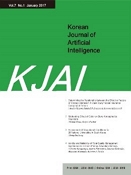- 권한신청
- E-ISSN2508-7894
- KCI
A Study on the Development of Service Quality Scale in Traditional Market for Big Data Analysis
Abstract
The purpose of this study is to develop a measure of service quality in the traditional market by examining previous research on the service quality of the traditional market studied so far. After defining basic concepts through definition of traditional market and existing studies, 5 categories of configuration items for SERVQUAL measurement in traditional market were made up based on existing researches related to definition of service quality and service quality of traditional market. A survey was conducted on the items that fit the intention of this study and various statistical analyzes were conducted. Statistical analysis was performed using SPSS 22.0 and AMOS 22.0. The reliability of the items was measured by the reliability test, and the predictability and accuracy of the items were examined. The validity of the measured variables was verified through confirmatory factor analysis. Reliability, empathy, responsiveness, certainty, and tangibility were the most important factors in this study. Responsiveness factors include communication, time reduction, real time, promptness. Assurance factors include the assurance of delivery, prompt answers, product knowledge items. Tangibility factors include, convenient device systems, location information, presence as a fact, and as a result, the latest modern items are adopted. The quality of service in the traditional market developed in this study was found to be good in reliability and validity test. Confirmatory factor analysis result using structural equation model also met the conformity index standard. If service satisfaction is measured based on this research, basic data can be presented to policy makers who implement policies on traditional markets to make the right decisions. In addition, it will be able to provide traditional market operators with operational strategy and marketing data. In the future, based on the traditional market service quality scale developed in this study, it is necessary to grasp the factors to be continuously managed to improve the service quality of the traditional market, user satisfaction, and intention to use.
- keywords
- Service Quality Scale, Big Data Analysis, traditional market
- 다운로드 수
- 조회수
- 0KCI 피인용수
- 0WOS 피인용수














